Rolling Stone story: ‘The Truth About Jebediah’, May 2011
My first artist feature for Rolling Stone, which appeared in the May 2011 issue.
You can click the scanned images below for a closer look, or read the article text underneath.
The Truth About Jebediah
After a decade and a half together, the Perth foursome have discovered a new type of success.
By Andrew McMillen / Photograph by Carine Thevenau
It wasn’t meant to be like this. Our interview was scheduled to take place hours ago in less risky confines, yet here we are in Jebediah’s hotel room; well-fed, and on our collective ways to well-drunk. Sitting on the couch are bassist Vanessa Thornton and singer/guitarist Kevin Mitchell, who places a near-full bottle of red wine on the coffee table and unceremoniously removes his shoes. At the table, drummer Brett Mitchell nurses a bourbon and cola. Across from him, lead guitarist Chris Daymond is chopping a nugget of weed into an egg cup. He rolls a joint, and he and Brett step out onto the balcony to smoke it. All the while, the band’s record company representative sits silently within earshot, wondering just how honest the band will be, now that they’re all stoned, or drunk, or both.
Most of their day was spent filming a video for their single “She’s Like A Comet” at a workshop in Sydney’s inner city. To say that the thrill of watching the band run through countless takes to a backing track had lost its lustre would be an understatement. Earlier, over dinner at an organic restaurant in Newtown, Kevin sneaks in a seemingly innocuous question. “Was the video thing boring?” It’s a shit-test. He’s checking whether they’re here to star in a fluff piece, or whether something deeper is being sought.
“Yeah, it got a bit old after a few hours.”
He and his bandmates laugh, agree, and seem relieved by the response. From that point on, honesty flowed as freely as the booze. Hours later, in the hotel room, we begin the interview with a blunt question: why do they play music? Immediately, Thornton retorts: “Why not?”
It’s a fair, if expected, riposte. These four Perth friends have been playing music together since 1994. It’s been a successful vocation. Their seventh gig won them the 1995 Australian National Campus Band Competition; their thirteenth won the national final in Lismore, N.S.W. Their first single, “Jerks Of Attention”, was a monster: backed by Triple J, the fast-paced tale of youthful excess was hastily embraced by a generation. The band signed to Sony imprint Murmur, whose roster included Silverchair and Something For Kate. To celebrate, they hosted a four-day bender at their house, while friends filmed their first music video. Fitting, for a song whose chorus describes the feeling of knowing it all while “wasted”.
Jebediah arrived at a time when the national fascination with alternative rock was peaking. The band’s debut album, Slightly Odway, was released in September 1997, and went on to achieve double-platinum sales (140,000-plus). Thornton recalls Murmur founder John O’Donnell admitting that he’d “really love for this record to go gold”.
“And we were like, ‘good luck to you!’” laughs Thornton.
“It was all just shits and giggles. We honestly thought he was absolutely dreaming,’” says Kevin Mitchell.
++
A lot has changed since those heady days. The band’s subsequent releases failed to achieve Odway-like success. The band-label relationship became strained after the release of their self-titled third album in 2002, a subject that arises when I ask them to pinpoint the moments where the band came closest to breaking up.
Kevin Mitchell chooses his words carefully. “There have been a couple of times where maybe my level of enjoyment has been at a low point, where perhaps I’ve questioned it. Everybody goes through periods where they question whether what they’re doing is what they’re supposed to be doing. I think that’s healthy.”
“But that’s as far as it gets,” Thornton adds.
“Is it possible to do anything for 15 years, and enjoy it the whole time?” Brett Mitchell asks. “If you’re a vet, you’re going to have to shove your hand up an animal’s bum every once in a while. But that’s not why you got into veterinary school – it’s just part of the deal.”
It seems fitting to ask: what were some of the hand-up-arse moments of the band’s career?
“My time was after the third record, where things turned to shit,” Thornton says. “I probably made it bigger than I should’ve. But my heart was invested in it, and that’s just the way it turned out. And it was my own reality that I’d created, and that got totally shattered. It fucking broke me.”
What happened?
“Just label shit. Pressures. Everything was second-guessed. Our manager at the time couldn’t be fucked fighting the label for anything that we wanted, and he’d made the decision that we were just going to go with whatever the label reckoned. Near the end, it was fucking soul-destroying for me.”
“It just felt like the technicalities overshadowed everything else,” offers Brett.
“All the things that I enjoyed about playing music were no longer relevant,” Thornton adds.“That’s when I thought, ‘Fuck, is this what I’m going to do for the rest of my life, play this fucking game?’”
That game was the business side of music, the bottom-line crunch that elevates the idea of records that sell far above the idea of records that sounds good. “Yeah – singles, videos, radio, tracklisting,” Thornton continues. “Like I said, I probably took it more to heart than I should’ve, and made too much of it in my own mind, but at the same time, it wasn’t about us four anymore. It was about what everyone thought was going to sell a record, which, to me, was not what we were even about. That was what the label did.”
It was at this point that the band severed ties – the 2003 compilation Gleesides & Sparities was their final release on Murmur – and released their fourth album, 2004’s Braxton Hicks, on their own label, Redline Records. Thornton is in two minds about the wisdom of that decision.
“But if it’d gone down the path that you’re talking about…” Brett begins, before his brother finishes his sentence.
“We wouldn’t be here now.”
“Putting it out on our label was an antidote,” Brett says.
“It saved everything for me,” says Thornton.
As it turns out, Braxton Hicks was Kevin’s hand-up-arse moment, and after the release, the band decided to take a break from writing, recording and performing together. “We always had the intention of getting back together, but if ever there was a time we were going to question it, it was then,” says Kevin. “Because that six months did turn into three years.”
++
In the intervening years, Kevin concentrated on his stylistic reinvention as acoustic singer-songwriter Bob Evans, a persona significantly removed from fronting a band like Jebediah. Though they still got together to play a handful of shows per year, the four were living separate lives. With the exception of Kevin, they’re still based in Perth, for the most part: Chris Daymond works at a record store, Brett Mitchell is a manager at a logistics company, and Thornton has just spent four years completing a Bachelor of Science, while still playing bass on the side for Felicity Groom & The Black Black Smoke.
Owing to his success with Bob Evans, Melbourne-based Kevin is the only one able to earn a living from music – “I’ve never had a full-time job in my life,” he reports – but that doesn’t mean team Jebediah aren’t in a good position. There is still enormous goodwill for the band, and having lived through the music business’s attempts to judge their career purely in financial terms, these four old friends have a more balanced understanding of “success” these days.
“My idea of success when the band first started was supporting You Am I or Tumbleweed or Magic Dirt at The Planet Nightclub in Perth,” says Kevin. “If we could support one of favourite bands at one of our favourite venues, that was like, ultimate success. But it changes: now, for me, success is all about longevity. The fact that we’re about to put out our fifth record is a huge source of pride for me. To be able to do it for this long, and still believe in what we’re doing – that to me, is success.”
The desire to make the most of this release is as keen as ever, and some of their intentions with new album Koscuiszko are refreshingly reminiscent of a band just at its beginning. “If I can quit my day job, that’ll mark a success,” replies Brett.
“If we’re still together, that’d be good,” offers Daymond.
“Geez, you’re easy to please!” laughs Thornton, as her bandmate runs around the room high-fiving everyone.
The band recently signed to Brisbane-based indie label Dew Process for Koscuiszko. The label is behind the likes of Sarah Blasko, the Grates and the Living End, and by modern standards it’s a stand-out success in marketing local music. A fact that is apparently lost on Thornton.
“You know what? I don’t care anymore,” says the bass player. “I feel so relaxed about everything. I just want to play songs that I love. I don’t care about the other shit.”
With one eye on the Dew Process rep sitting out on the balcony, Kevin – the most media-experienced of the group, by far – hastily lightens the mood by changing topics. “I think it’s important to note that the way we made this record has been so incredibly different to any other record that we’ve made. For most of it we had no manager, no label – nothing. The first three records were all with Sony, the biggest record label there is. For the fourth record, we were doing it on our own label, but we were still very much part of a process. With this record, absolutely all of that stuff had been completely stripped away.”
“For nearly two years, only five people had heard these songs,” says Thornton, in reference to the band and Dave Parkin, who has worked with Perth groups Sugar Army, Snowman and Karnivool.
“We were only making a record because the four of us wanted to make a record,” Kevin adds. “There wasn’t a single other person involved in the process. We’ve never made a record in those circumstances before. We did it over a long period of time; normally, we go into the studio for a month, bash out the songs, and bang out a record. This one’s easily the most fun I’ve had making a Jebs record since the very first one, and I also think it’s the most playful we’ve been in the studio. It’s the closest thing to the first album, where we made a record without considering anyone except ourselves.”
“We weren’t making a ‘product’,” says Brett.
++
Two days later we meet in Brisbane, ahead of a sold-out gig at The Zoo. Last night, Jebediah played to a capacity Annandale Hotel. Over pizza and milkshakes in the Brunswick Street Mall, Kevin reflects on some of the things that came out last time we met. “There were a couple of moments where things were said, where I was like, “ooh”,’ says Kevin. “Not from me, though. As long as it’s clear who said what,” he adds, throwing a glance at Thornton.
“It was probably a surefire way to be excused from doing interviews in the future. Print it all. Whatever,” she shrugs with a smile.
A few prickly moments aside, it’s clear the vibe in the Jebediah camp these days is a positive one, and that atmosphere is reflected in the lyrical themes on Kosciuszko. “A lot of the lyrics are pretty positive, because it was an exciting stage,” explains Kevin, who is the band’s sole lyricist. “Getting new songs together, and making a new record. Even the angrier lyrics are still about changing for the better. There’s not a lot of self-indulgent negativity going on. There’s no angst.”
No angst? “Well, less angst,” he replies. “And so there bloody should be; I’m fuckin’ 33 years old. There’s nothing worse than a married 33 year-old who lives in the suburbs.”
“What have you got to be angsty about?” his brother asks.
“Everybody’s got something to be angsty about,” Kevin quips, recalling a conversation between the songwriters in his other group, Basement Birds – Josh Pyke, Kav Temperley, and Steve Parkin. “We were talking about how, when you first start writing songs as a teenager, you’re writing about break-ups. You’re full of angst, and writing all these negative things. You get older, you find love; you get married, you get settled in a nice house – basically, you’ve got less and less to be angry about. So in order to write angsty lyrics, you start writing political songs. Because the world is always going to have problems!”
There’s a line in the album’s first track, “Lost My Nerve”, about being “fuckin’ sick of listening to some rich kids playing on their guitars”, which would seem to suggest there are still a few things Kevin can be pissed off about.
“If there’s a young dude that lives at home with his parents, and has all the best gear bought for him; if he’s trying to rock out on stage, I can’t get anything from that,” he says. “It’s not about anyone in particular. I’m still attracted to a lot of romantic ideals about rock & roll.”
Thornton helps him out: “Rock and roll’s gotta come from your guts, not from your parents’ hip pocket.”
Before they head off to soundcheck, I ask the band what Australia should know about Jebediah now. “They already know too much, and that’s what I’m concerned about,” says Kevin. “I’m sure that there’s some people out who would be happy if they never heard the word ‘Jebediah’ ever again.”
“Gee, they must have enjoyed their last few years then, mustn’t they?” replies Thornton.
“Yeah. And I’m going to enjoying thinking about those people when the record comes out, and our songs are on the radio. The people that don’t like your music, in some ways it can be more fun, that antagonising aspect of it.”
“It’s an emotional response. Indifference is way more insulting,” says Brett.
“Absolutely,” Kevin agrees. “Indifference is the ultimate insult for anything creative. If people aren’t going to love it, the next best thing is for them to hate it. The whole idea of art is to move. And if you don’t move someone, you’re not doing your job.”
++
For more Jebediah, visit their website. The music video for ‘She’s Like A Comet‘ is embedded below.
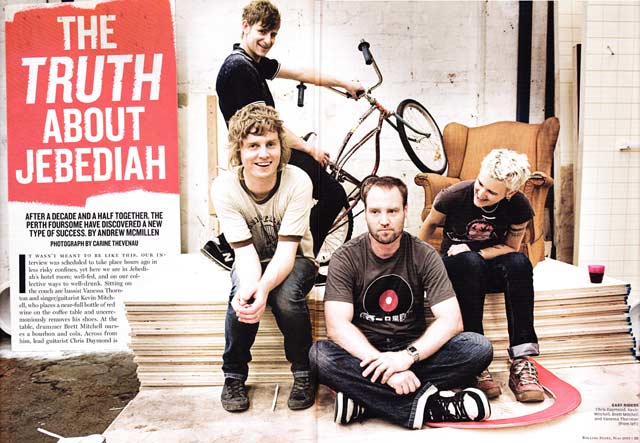
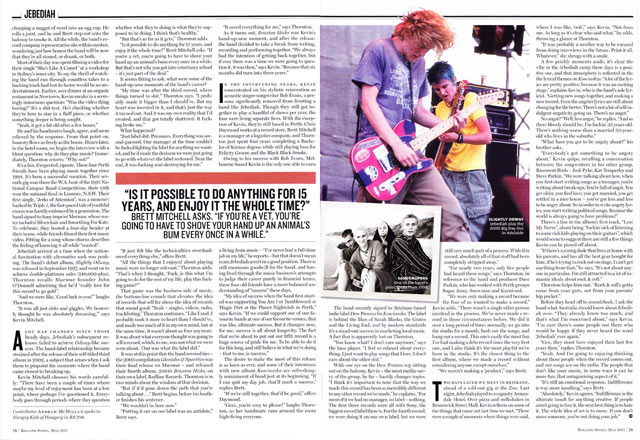
 Interview – Jebediah
Interview – Jebediah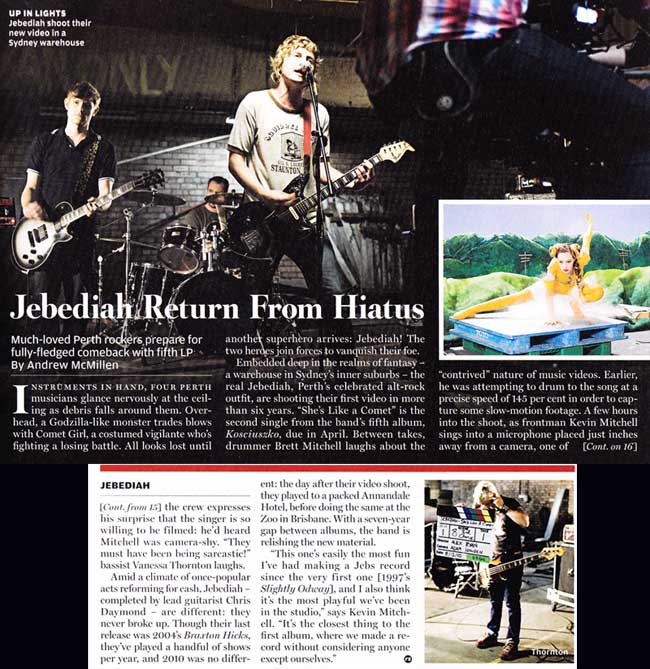
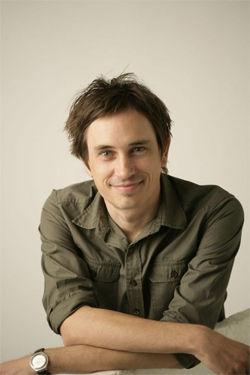 Trent Dalton [pictured right] is the best feature journalist in Australia. I first had this realisation sometime in 2005, during my final year of high school. That year, Queensland newspaper The Courier-Mail launched its new glossy magazine,
Trent Dalton [pictured right] is the best feature journalist in Australia. I first had this realisation sometime in 2005, during my final year of high school. That year, Queensland newspaper The Courier-Mail launched its new glossy magazine, 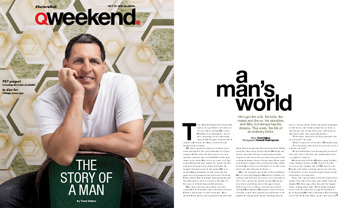
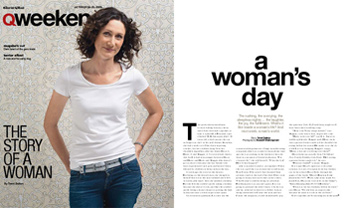
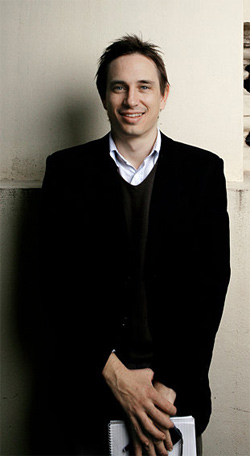
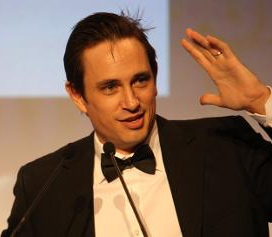 Probably saying how amazing my fellow finalists were. There were three finalists from Qweekend, which is fantastic. It was a great coup for Queensland writers out there. It was really wonderful. Basically I’m saying “I can’t believe I’ve got this!”, because those two writers I was nominated with – Matt Condon and Amanda Watt – are absolute inspirations, and heroes of mine.
Probably saying how amazing my fellow finalists were. There were three finalists from Qweekend, which is fantastic. It was a great coup for Queensland writers out there. It was really wonderful. Basically I’m saying “I can’t believe I’ve got this!”, because those two writers I was nominated with – Matt Condon and Amanda Watt – are absolute inspirations, and heroes of mine.